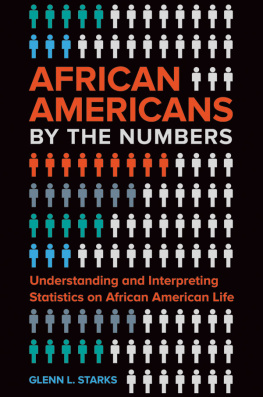
John Katzenbach
The Analyst
Part One. The Unwelcome Letter
In the year he fully expected to die, he spent the majority of his fifty-third birthday as he did most other days, listening to people complain about their mothers. Thoughtless mothers, cruel mothers, sexually provocative mothers. Dead mothers who remained alive in their childrens minds. Living mothers, whom their children wanted to kill. Mr. Bishop, in particular, along with Miss Levy and the genuinely unlucky Roger Zimmerman, who shared his Upper West Side apartment and it seemed the entirety of both his waking life and his vivid dreams with a hypochondriac, manipulative, shrewish woman who seemed dedicated to nothing less than ruining her only childs every meager effort at independence-all of them used the entirety of their hours that day to effuse bitter vitriol about the women who had brought them into this world.
He listened quietly to great surges of murderous hatred, only occasionally interjecting the most modest of benign comments, never once interrupting the anger that spewed forth from the couch, all the time wishing that just one of his patients would take a deep breath and step back from their rage for an instant and see it for what it truly was: fury with themselves. He knew, through experience and training, that eventually, after years of talking bitterly in the oddly detached world of the analysts office, all of them, even poor, desperate, and crippled Roger Zimmerman, would reach that understanding themselves.
Still, the occasion of his birthday, which reminded him most directly of his own mortality, made him wonder whether he would have enough time remaining to see any of them through to that moment of acceptance which is the analysts eureka. His own father had died shortly after he reached his fifty-third year, heart weakened through years of chain smoking and stress, a fact that he knew lurked subtly and malevolently beneath his consciousness. So, as the unpleasant Roger Zimmerman moaned and whined his way through the final few minutes of the last session of the day, he was slightly distracted, and not paying the complete attention he should have been when he heard the faint triple buzz of the bell hed installed in his waiting room.
The bell was his standard signal that a patient had arrived. Every new client was told prior to their first session that upon entry, they were to produce two short rings, in quick succession, followed by a third, longer peal. This was to differentiate the ring from any tradesman, meter reader, neighbor, or delivery service that might have arrived at his door.
Without shifting position, he glanced over at his daybook, next to the clock he kept on the small table behind the patients head, out of their sight. The six p.m. entry was blank. The clock face read twelve minutes to six, and Roger Zimmerman seemed to stiffen in his position on the couch.
I thought I was the last every day.
He did not respond.
No one has ever come in after me, at least not that I can remember. Not once. Have you changed your schedule around without telling me?
Again, he did not reply.
I dont like the idea that someone comes after me, Zimmerman said decisively. I want to be last.
Why do you think you feel that way? he finally questioned.
In its own special way, last is the same as first, Zimmerman answered with a harshness of tone that implied that any idiot would have seen the same.
He nodded. Zimmerman had made an intriguing and accurate observation. But, as the poor fellow seemed forever doomed to do, he had made it in the sessions final moment. Not at the start, where they might have managed some profitable discussion over the remaining fifty minutes. Try to bring that thought with you tomorrow, he said. We could begin there. Im afraid our time is up for today.
Zimmerman hesitated, before rising. Tomorrow? Correct me if Im mistaken, but tomorrow is the last day before you disappear for your damn stupid August vacation the same as you do every damn year. What good will that do me?
Again, he remained silent, letting the query remain floating in the space above the patients head. Zimmerman snorted loudly. Whoevers out theres probably more interesting than I am anyway, huh? he said bitterly. Then Zimmerman swung his feet off the couch and looked up toward the doctor. I dont like it when something is different, he said sharply. I dont like it at all. He tossed a quick, pointed glare at the doctor as he rose, shaking his shoulders, letting a nasty snarl creep across his face. Its supposed to always be the same. I come in, lie down, start talking. Last patient every day. Thats the way its supposed to be. No one likes change. He sighed, but this time with more than a touch of anger, not resignation. All right. Tomorrow, then. Last session before you take off for Paris, Cape Cod, Mars, or wherever you head for and leave me all goddamn alone. Zimmerman pivoted abruptly and strode purposely across the small office, and out the exit door without once looking back.
For a moment, he remained in his armchair, listening for the faint sound of the angry mans footsteps resounding down the exterior hallway. Then he rose, feeling some of the age that had stiffened his joints and tightened his muscles during the long and sedentary afternoon behind the couch, and made his way to the entrance, a second door that led to his modest waiting room. In some respects, this room with its odd, unlikely design, where hed established his practice decades ago, was unique, and had been the sole reason hed rented the apartment in the year after hed finished his residency and the reason hed stayed there more than a quarter century.
The office had three doors: one which led to the vestibule, which hed reinvented as a tiny waiting room; a second, which led directly out to the apartment building corridor; and a third, which took him inside to the modest kitchen, living area, and bedroom of the remainder of the apartment. His office was a sort of personal island, with portals to these other worlds. He often regarded it as a nether-space, a bridge between different realities. He liked that, because he believed the separation of the office from the great outside helped make his own job somewhat easier.
He had no idea which of his patients had returned without an appointment. He could not immediately recall a single instance of a patient doing that, in all his years of practice.
Nor was he able to imagine which patient was in crisis sufficiently to throw such an unexpected change in the relationship between analyst and analysand. Routine was what he built on, routine and longevity, where the sheer weight of words spoken in the artificial but absolute sanctity of the analysts office finally paved themselves into roads of understanding. Zimmerman was right about that. Change went against the grain. So he briskly crossed the room with the modestly gathered pace of anticipation, slightly unsettled at the idea that something of possible urgency had entered a life he frequently feared had become far too stolid and utterly predictable.
He opened the door to the waiting room and stared ahead.
The room was empty.
For a moment, he was confused, and thought perhaps that hed imagined the bell ringing, but then, Mr. Zimmerman had heard it as well, and he, too, had recognized the distinctive noise signaling that someone familiar was present in the waiting room.
Hello? he said, although there was clearly no one there to hear him.
He could sense his forehead knitting with surprise, and he adjusted the wire-rim glasses perched on his nose. Curious, he said out loud. And then he noticed the envelope left behind on the seat of the single stiff-backed chair he provided for patients waiting for their appointments. He exhaled slowly, shook his head back and forth, and thought this was a bit overly melodramatic, even for the membership of his current list of patients.
Next page










